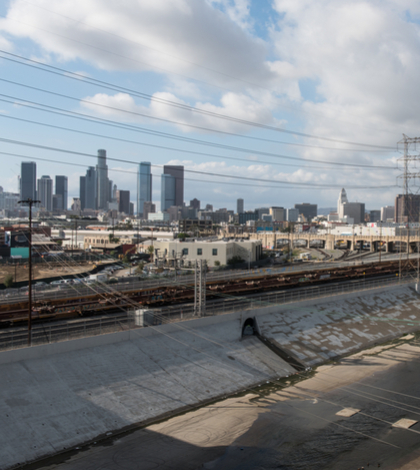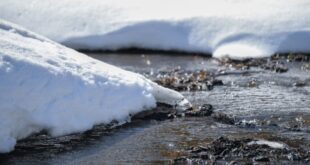A settlement and Memorandum of Understanding (MOU) has been reached between the U.S. Army Corps of Engineers and the Los Angeles Regional Water Quality Control Board regarding two dredge and fill operations by the Army Corps that violated the Clean Water Act. The 2011 and 2012 violations occurred in the Los Angeles River and its tributaries.
The first violation occurred between Oct. 24 and Nov. 7, 2011 when the Army Corps dredged 6.5 acres in Verdugo Wash, including the confluence of the Wash and the L.A. River. Verdugo Wash is a tributary of the L.A. River in Glendale, in an area commonly known as the Glendale Narrows. The Army Corps did not acquire the required Clean Water Act (Section 401) state water quality certification from the Los Angeles Water Board for this work, and the Board was not made aware of this project until Jan. 13, 2012.
The second violation, on Dec. 29, 2012, transpired when the Army Corps removed riparian vegetation along Haskell Creek, another tributary to the L.A. River located in the Sepulveda Basin. This work was also done without state water quality certification.
The Army Corps also conducted dredge and fill operations in the L.A. River itself during Dec. 2012. The Sepulveda Basin, a 2,000-acre flood management basin and wildlife reserve, is located on the upper portion of the L.A. River in the Los Angeles County’s San Fernando Valley.
Both of these occurrences were alleged to have discharged sediment into the L.A. River that could potentially affect water quality and aquatic life and wildlife habitat. Excessive discharges of sediment have been known to limit sunlight from entering the water and thereby inhibit the growth of aquatic plants and destroy spawning habitats for bottom-dwelling organisms and larval fish. In both instances, the Army Corps used heavy equipment to remove vegetation. It is alleged that during both dredge and fill operations little was done to mitigate the discharges of oil, grease and other pollutants into these waters.
The Los Angeles Water Board’s complaint sought a court order declaring the Army Corps’ discharge activities without state water quality certification to be violations of the Clean Water Act. The court order directed the Army Corps to comply with the Clean Water Act and to cease all dredge and fill operations and discharges of pollutants into the L.A. River and its tributaries unless the Army Corps obtains a valid state certification for each operation or demonstrates compliance with the Clean Water Act.
The settlement includes a MOU between the U.S. Army Corps of Engineers and the Los Angeles Regional Water Quality Control Board that spells out the regulatory processes, guidelines, and best management practices for future work in the Los Angeles County Drainage Area (LACDA). The LACDA is managed by the Army Corps.
“We are pleased to reach an agreement with the Army Corps of Engineers that protects the water quality and environment of the Los Angeles River and its tributaries,” said Irma Muñoz, chair of the Los Angeles Water Board. “With this agreement we look forward to an open and communicative process, and to work with the Army Corps on projects in the Los Angeles County Drainage Area that protect the health and wellbeing of our communities.”
As part of the MOU, the Army Corps has agreed to advise the L.A. Water Board by Oct. 31 of each federal fiscal year of the planned LACDA projects and the planned operation, maintenance, repair, replacement and rehabilitation activities for that year. The Corps will also provide between 45-75 days advance notice prior to commencing any such activity, depending on the project.
Along with the notifications, the Army Corps will work collaboratively with the Water Board and use accepted best management practices to reduce the amount of pollutants and sediment discharged into the L.A. River and its tributaries. The Army Corps operates six flood risk management facilities, and approximately 34 miles of flood control channels and levees within Los Angeles County.
 California Water News Daily Your Source For Water News in California
California Water News Daily Your Source For Water News in California


